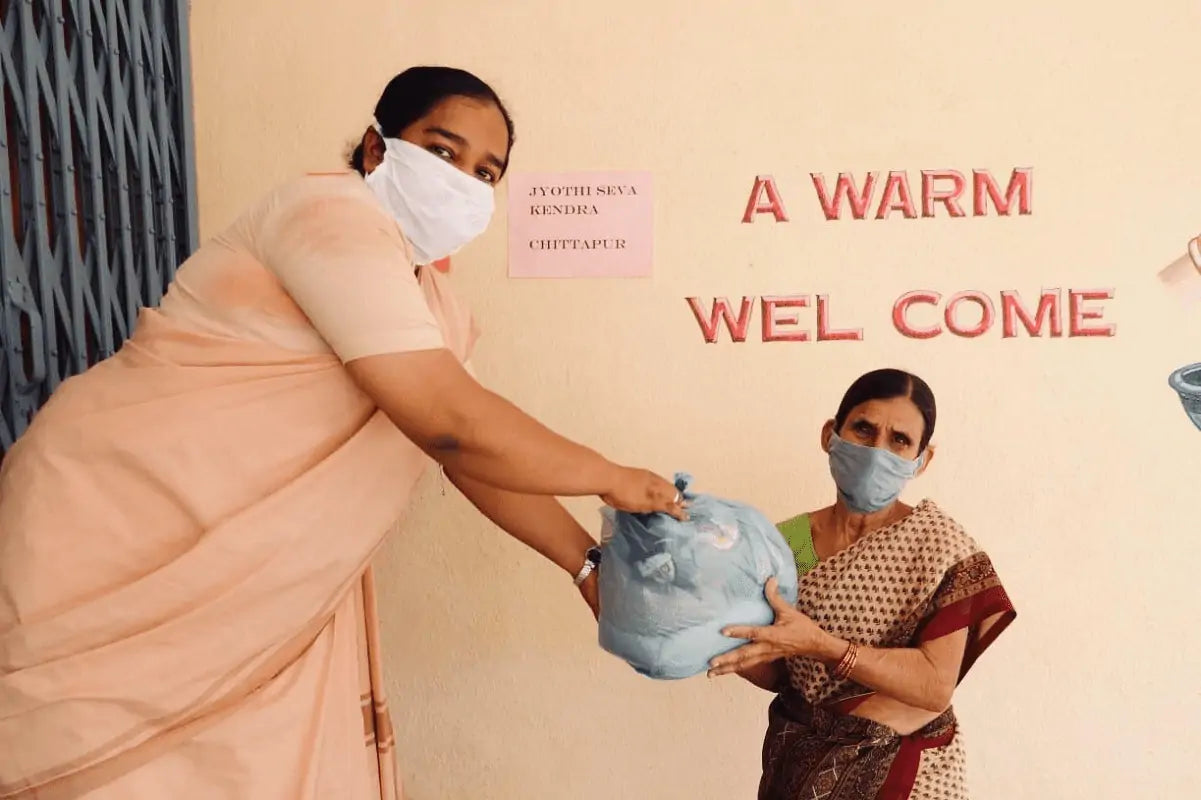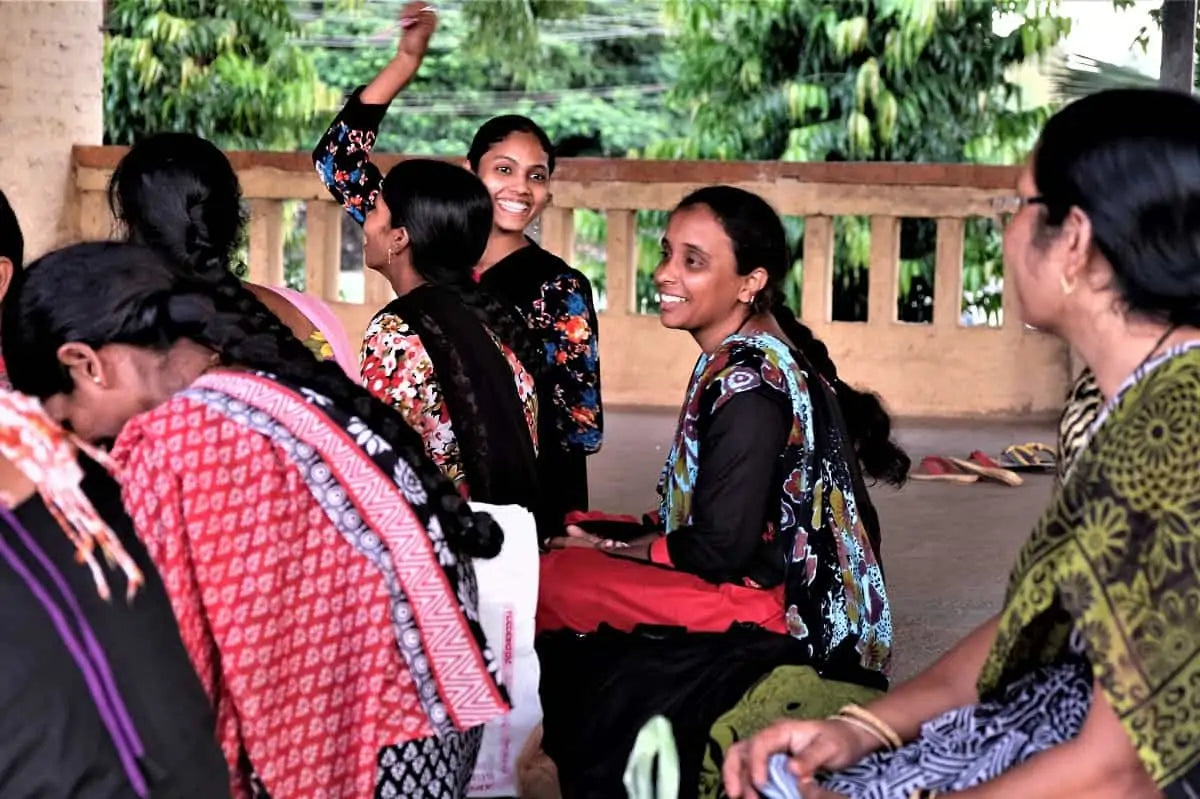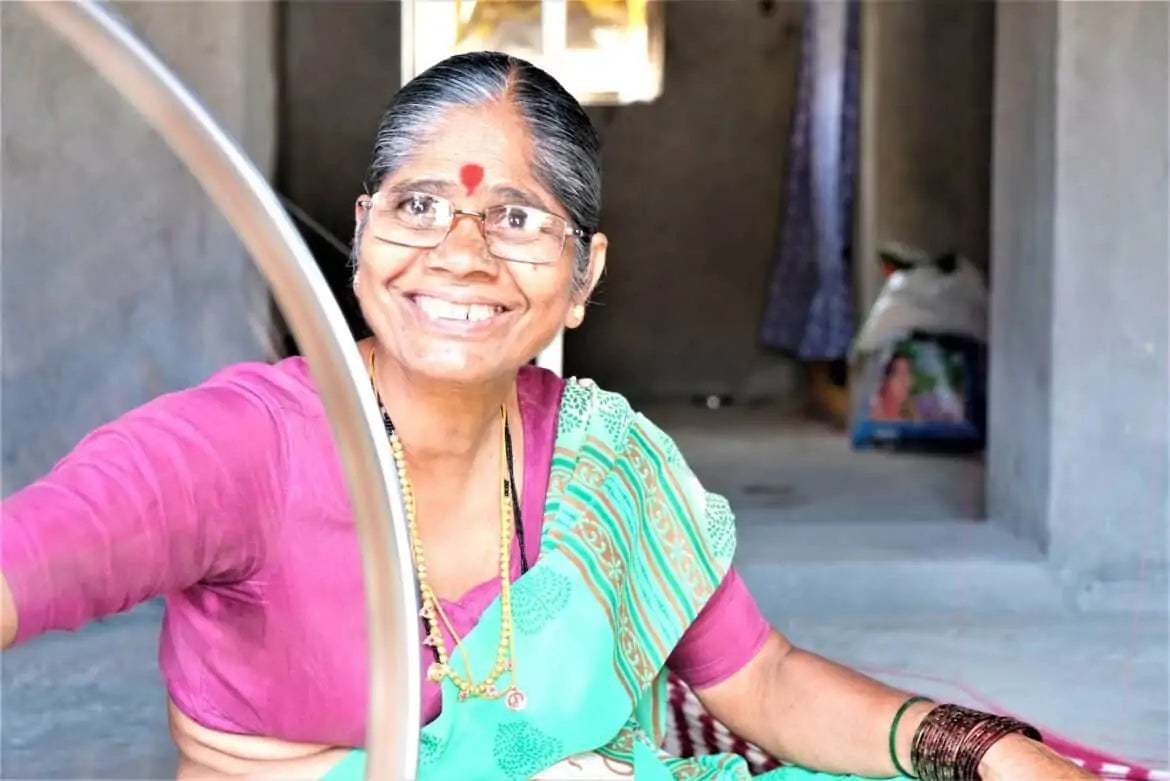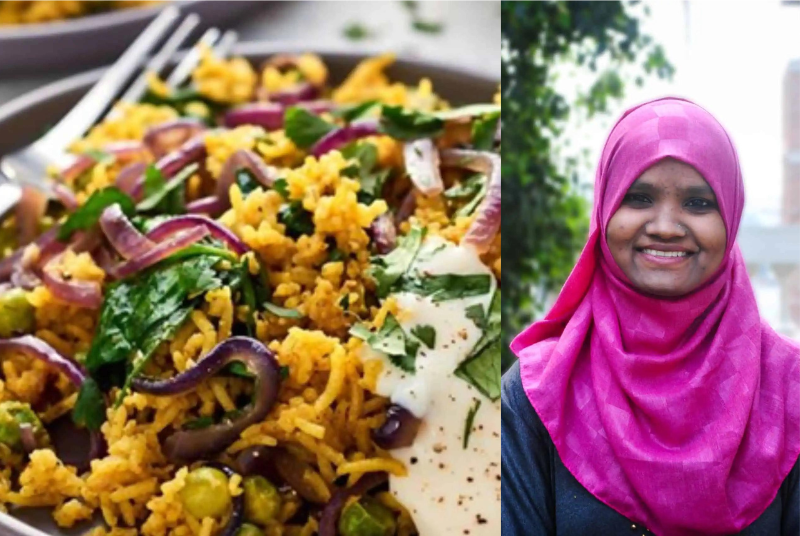JYOTI SUSTAINABILITY REPORT 2020-2022
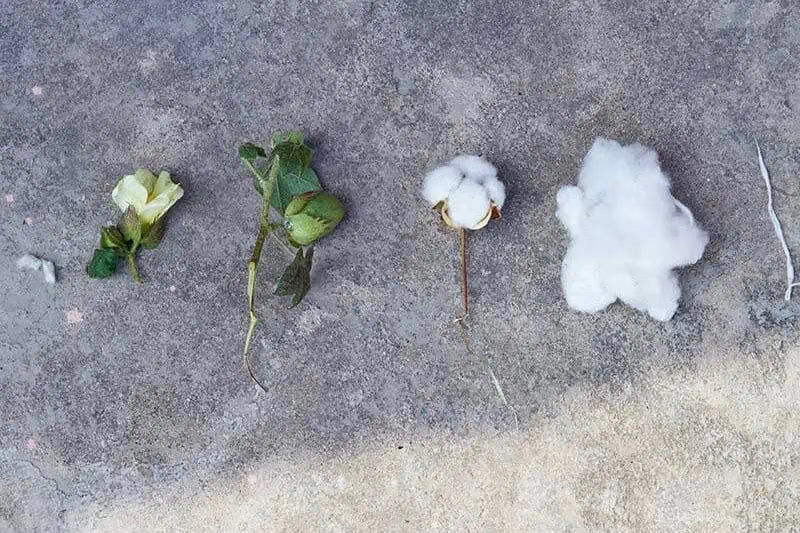
The time has come. After more than 12 years of Jyoti - Fair Works, we are writing our first annual report. In recent years, our sole focus has been on the further development of our work in Germany and India, so we have kept putting it off. But now it is time. All the incredibly rich experiences we have gained in recent years and the successes we have celebrated together deserve to be written down.
This report is intended to help you understand our work even better, so we have divided it into 5 clear sections.
- Our company structure and what has changed in the last year
- Jyoti in India – our work on site
- Jyoti in Peru – on to new shores
- Sustainability does not end with production – Jyoti-Circular
- The Jyoti eV and its projects
1. Our corporate structure
2022 was an exciting year for us - full of new beginnings, challenges and changes. The biggest changes were certainly the restructuring of our work in India and the opening of our first "real" store, a concept store for female*led, sustainable brands in Berlin.
First to India: While in the past Jyoti - Fair Works only existed as a German company and the associated German association, Jyoti eV, our Indian company, JFW LLP, has also existed since the end of 2021. Under the management of its shareholder Sunandha Pinnamraju and based in Hyderabad, India, JFW LLP now employs our entire Indian team and is responsible for organizing our production. A big step, as our Indian team members were previously employed through our Indian partner NGOs and have now finally become legally part of our direct team. Another important argument for founding the Indian company was the independence of our local employees. So we are now starting to accept orders from other labels and companies step by step - in an effort not to base job security solely on the success of Jyoti - Fair Works. So if you are thinking about your own collection or know companies that are looking, we are the right address. We are already proud to report on the successful production for the Swiss label Jungle Folk and the label Tiija.
Of course, this change has involved a lot of work, but now we can no longer imagine what it was like before.
left: Sunandha, Managing Director of our Indian company / right: Capsule collection with Jungle Folk
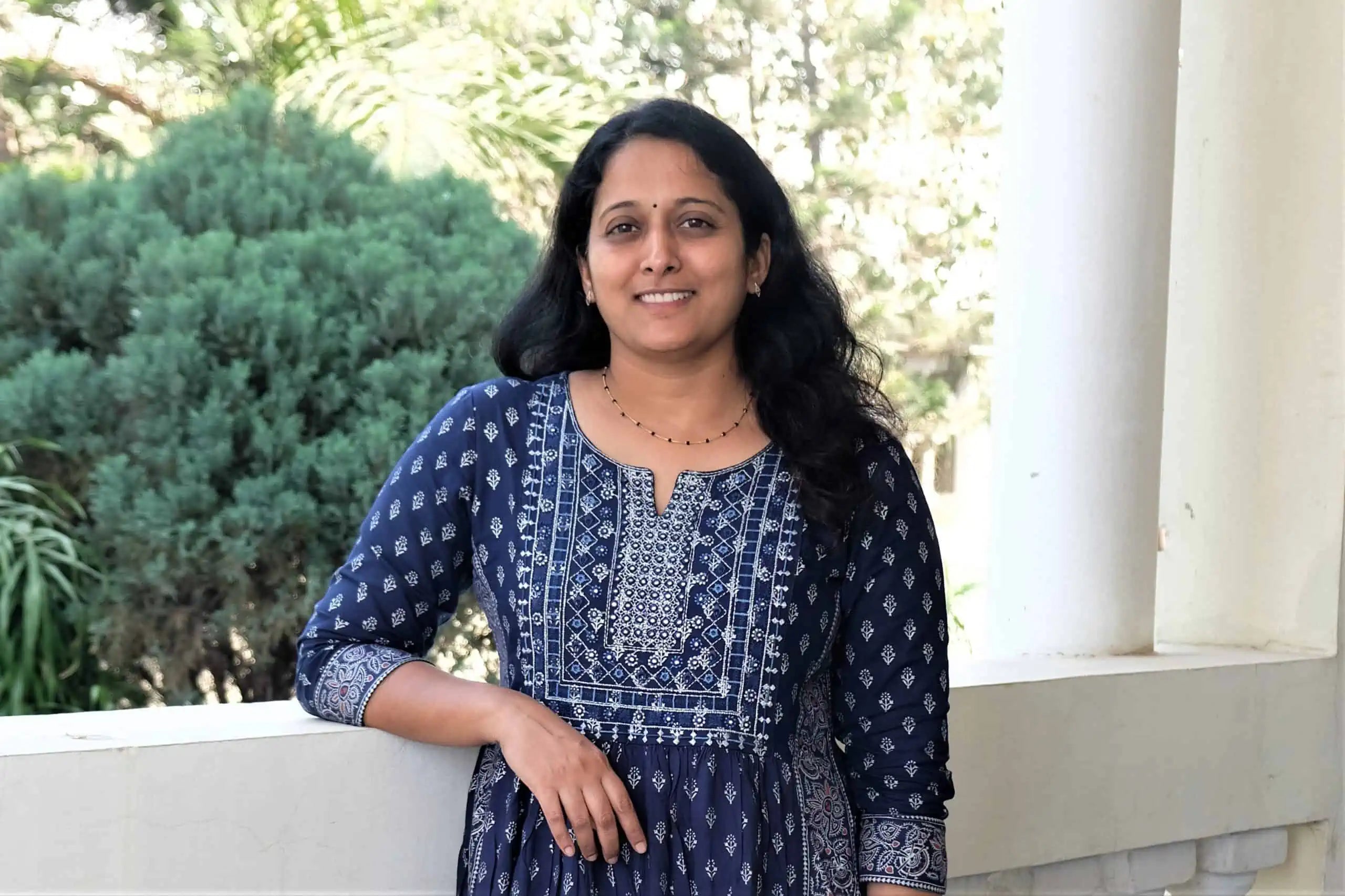

Pictures below: Our concept store for women*-led, sustainable brands
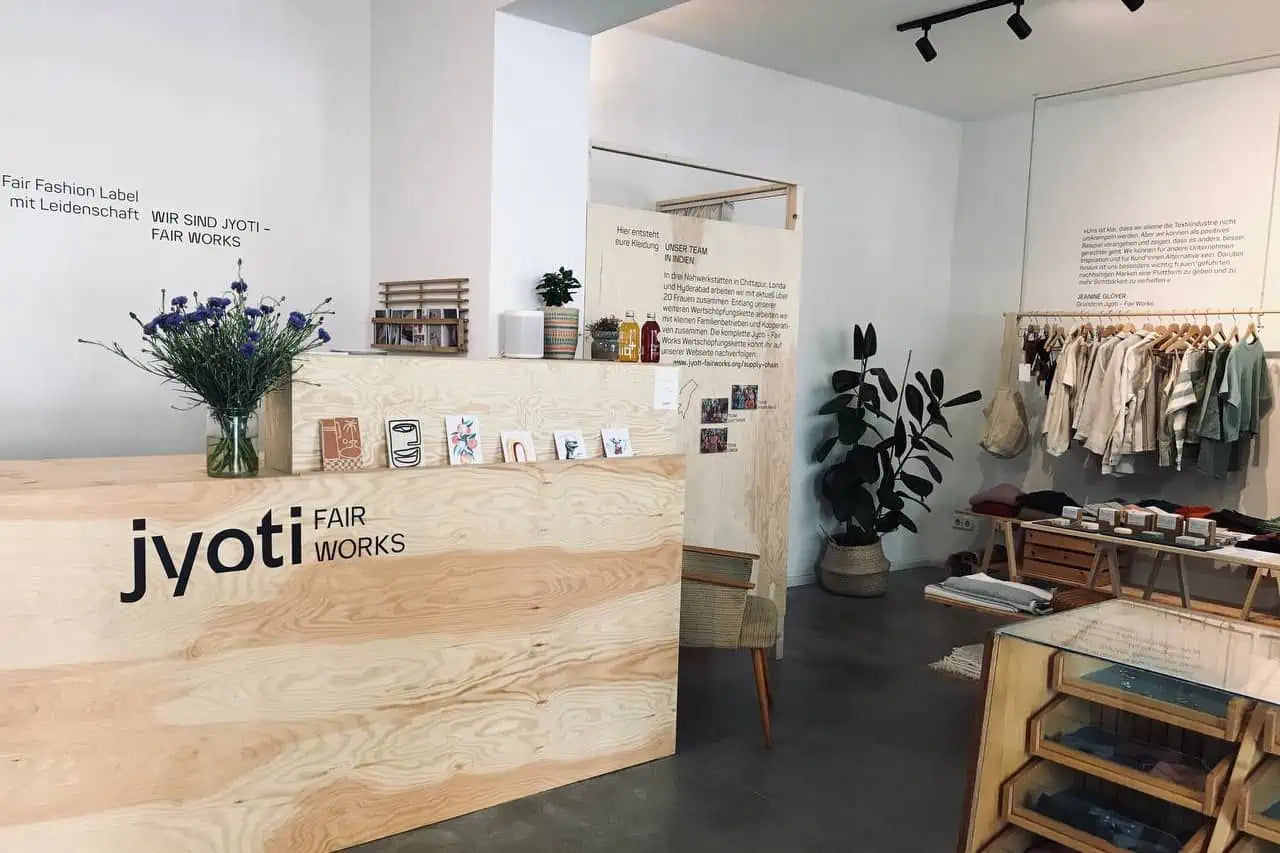
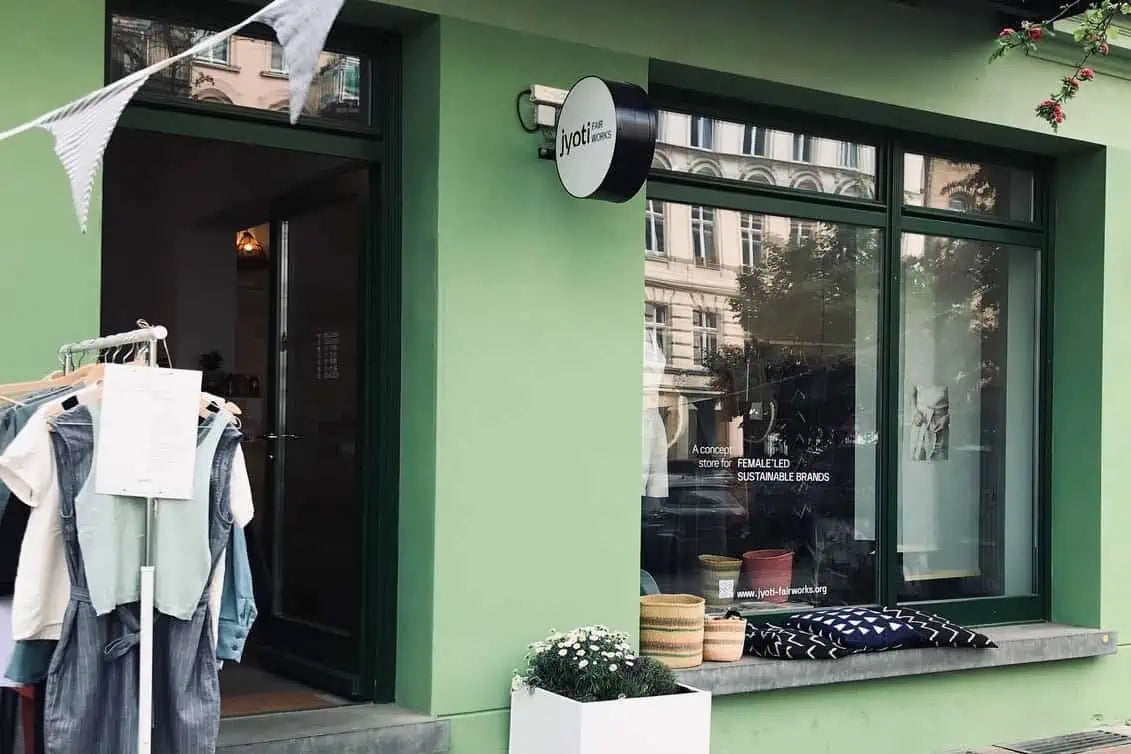
It's very similar with our new Berlin store. Since opening at the beginning of May 2022, we've had countless wonderful encounters with you and are delighted to finally be able to offer you our pieces to touch and try on. Because, without wanting to exaggerate, our handwoven fabrics are something very special and are best seen live and in color.
2. Jyoti in India
We have already talked about our Indian team, but haven't introduced them yet. Since our founding in 2010, our team has grown steadily. While it all started in the small South Indian town of Chittapur, we now run 3 sewing workshops with 25 permanent seamstresses. 16 women work in our workshop in Chittapur, 6 in Londa and 3 in the capital of Telangana, Hyderabad (from left to right)
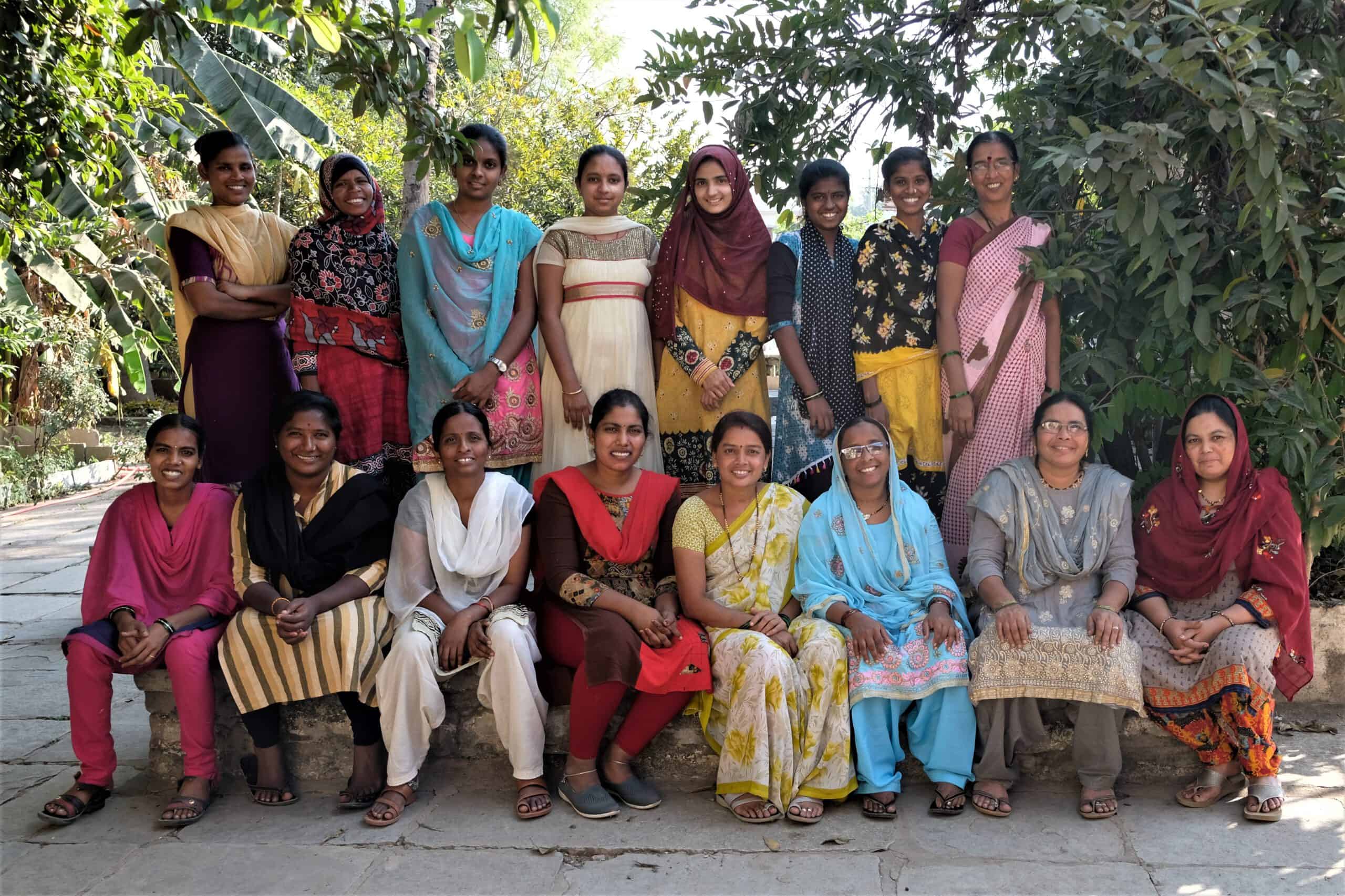
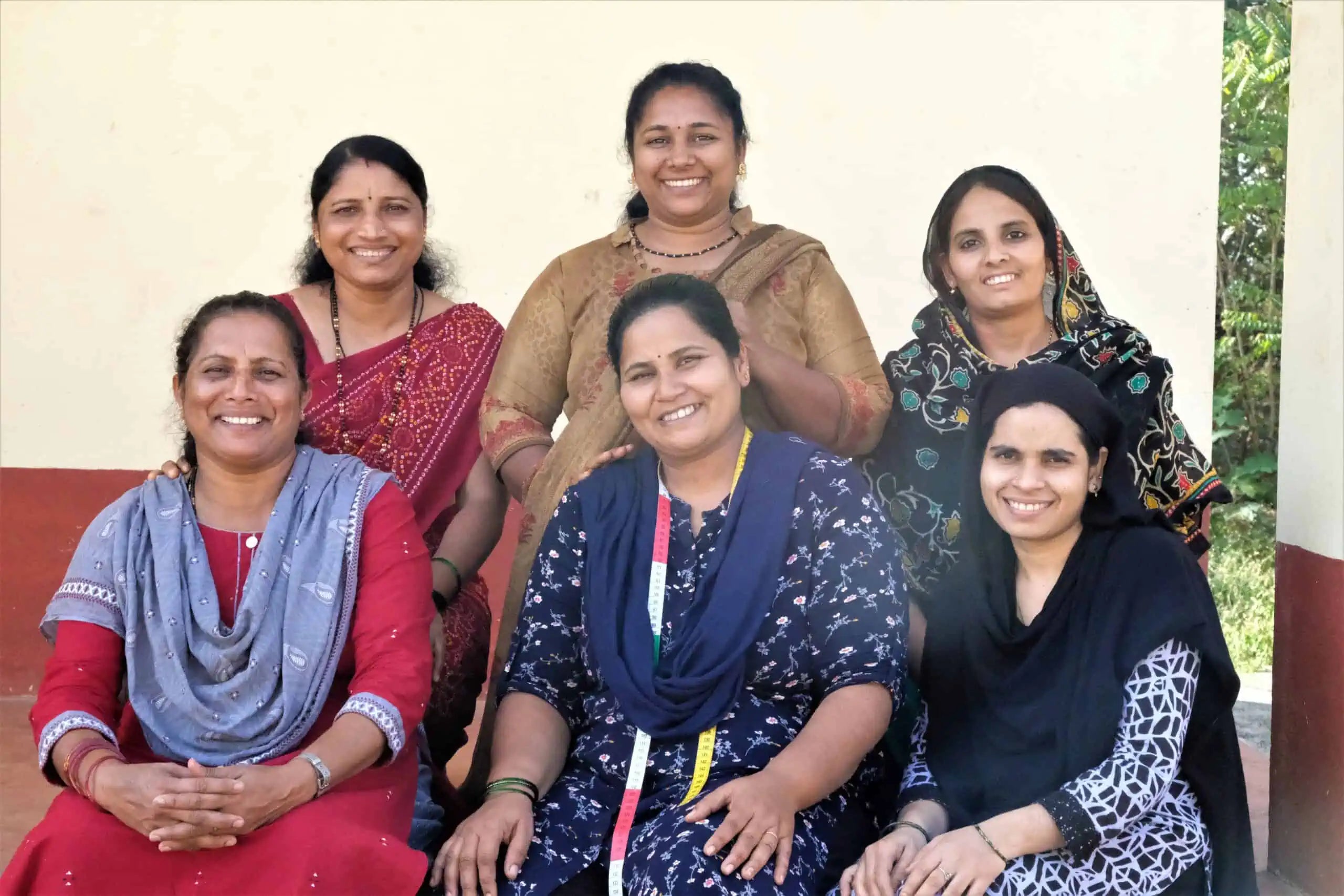
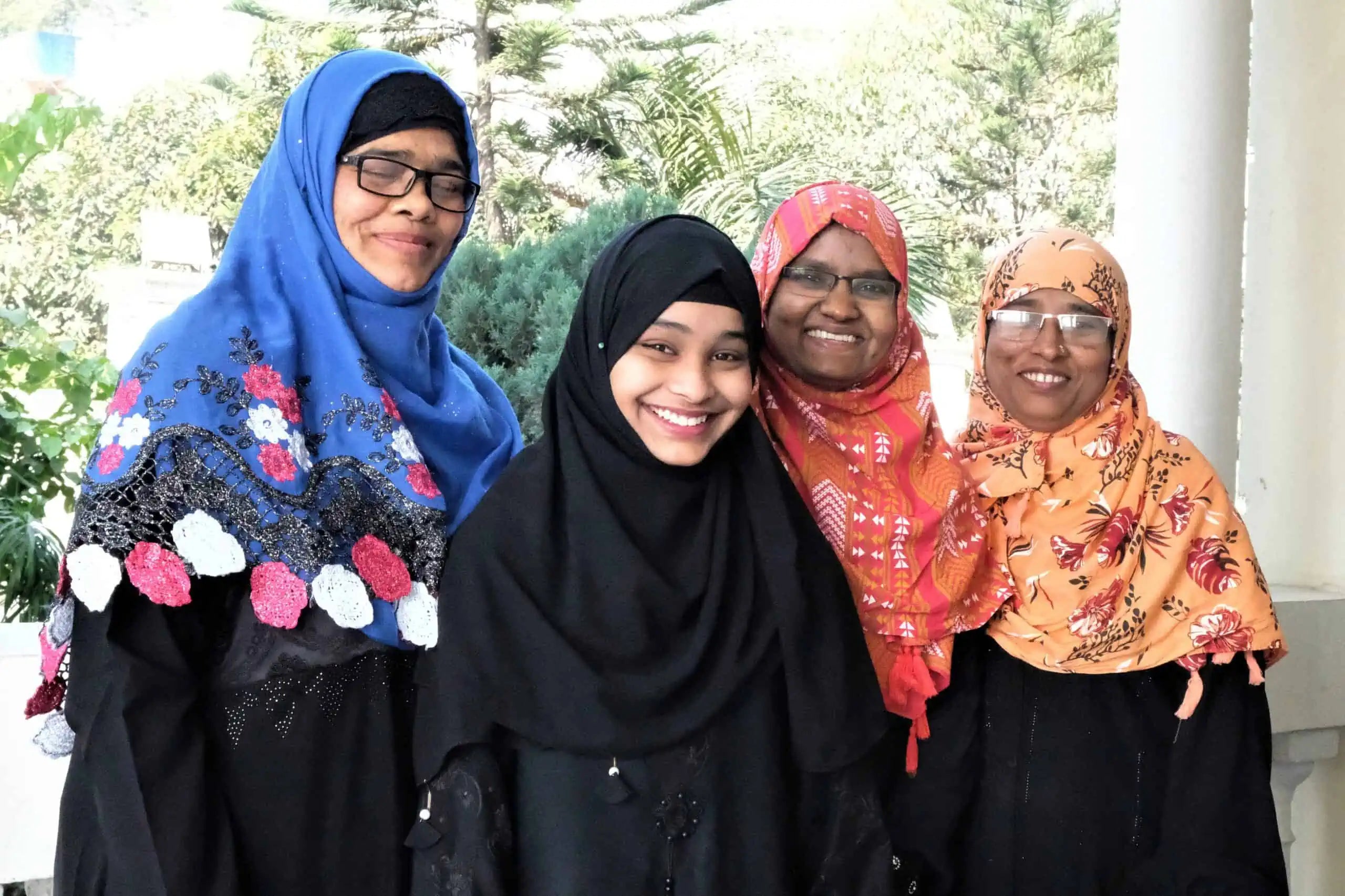
Our founder Jeanine has spent the last few weeks with them, drinking countless chais together, talking about new ideas, wishes and approaches to change – an exchange that is an absolute prerequisite for us to create truly fair and socially sustainable jobs.
For us, fair working conditions mean:
- The payment of a living wage = a salary that allows you to live comfortably and also has enough money available to save for larger investments, such as children's tuition fees
- A right to association
- Paid vacation
- sick days
- parental leave
- A safe, comfortable workplace
- No more than 40 working hours per week
- right and opportunity to have a say
We are particularly proud that a large proportion of our first employees from 2010 are still part of our team and train the new arrivals with great enthusiasm. In 2022, we were very successful in taking on 3 new seamstresses.
An important part of our work in India, however, is not only the collaboration with our Indian team, but also with our partners along the deeper value chain. From the very first garment, our goal was to know exactly where, how and by whom our fabrics are made. On countless train journeys through India and over the years, we have learned more and more about the various, all impressive, weaving techniques of the numerous regions of India and found great partners. We now have 8 long-term partners - all small family businesses, cooperatives, NGOs or social enterprises - who we meet regularly, with whom we design colors, patterns and structures together and from whom we always learn new things. 90% of these fabric producers weave by hand, certainly not the fastest way to produce fabric, but a wonderful way to work as resource-efficiently as possible, as well as to strengthen traditional handicrafts and thus a large section of the population in India. Not to mention the wonderful result that cannot be produced industrially.
Pictures below: Weber Kanti, one of our long-term partners in Bhuj, West India
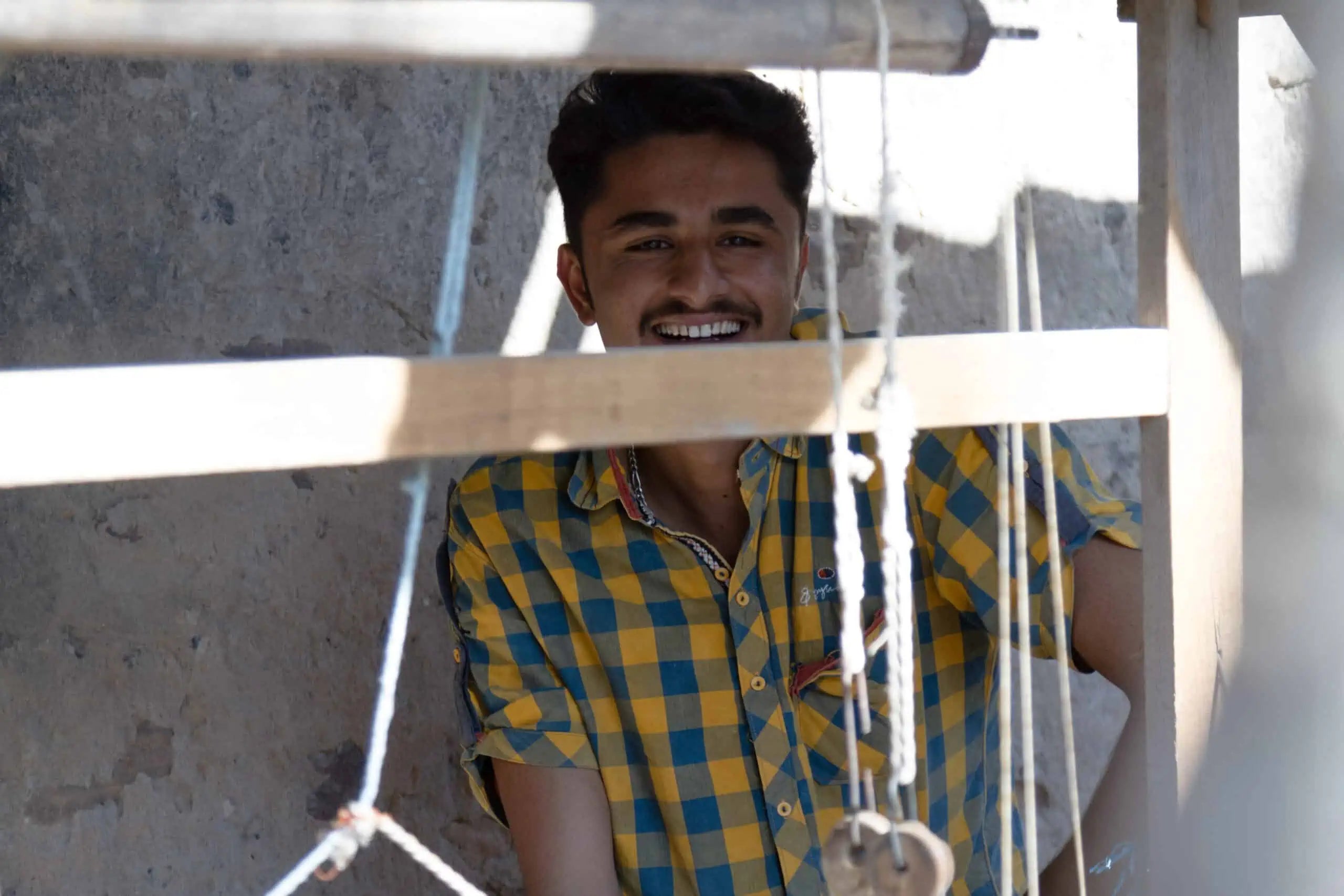
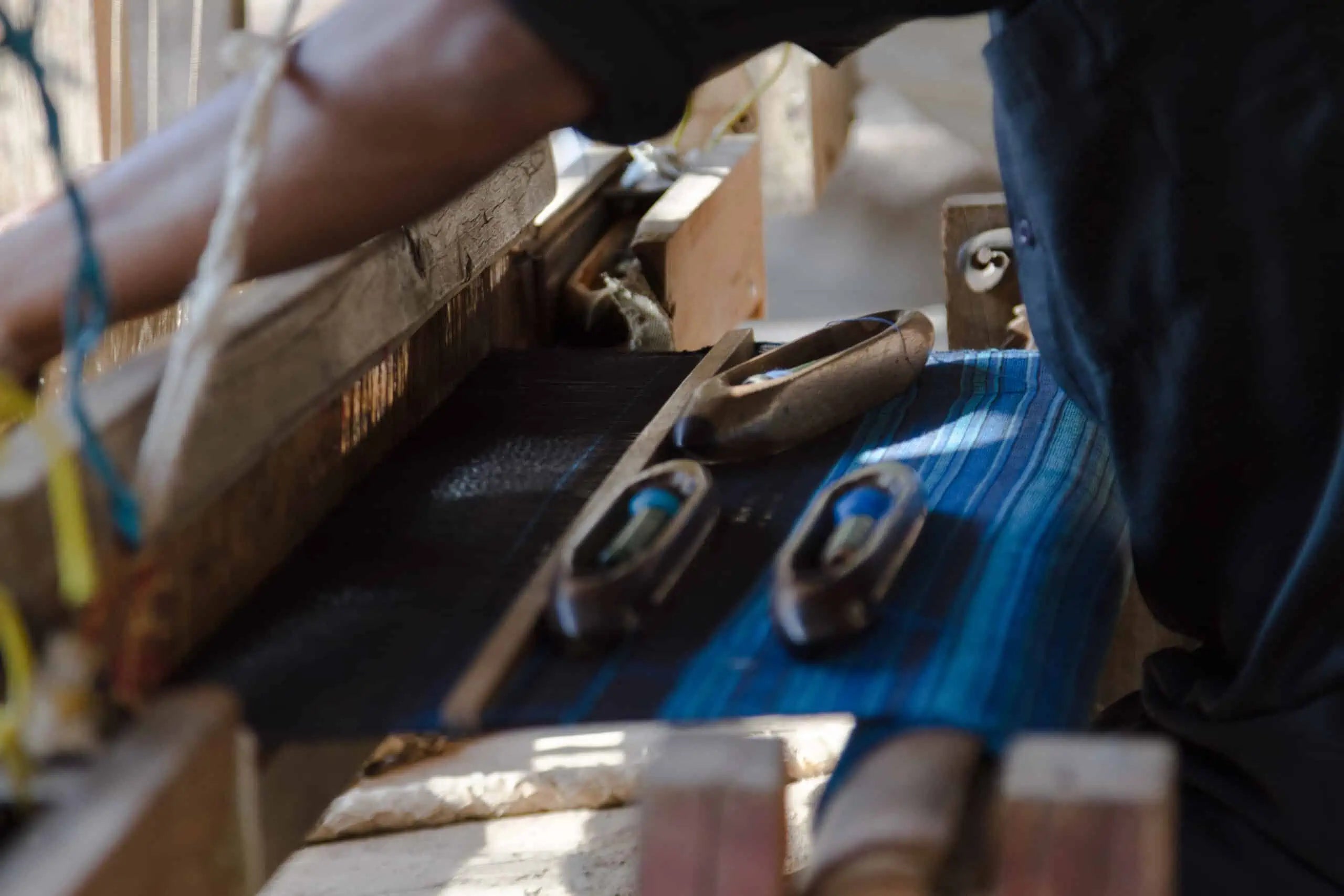
While we have worked exclusively with natural fibers such as cotton, silk, hemp and flax from the beginning, in 2022 we were able to have a portion of our fabrics woven from recycled cotton for the first time - a great success that has saved a significant amount of water and which we are pursuing with a lot of energy.
3. Jyoti in Peru
After launching our first small baby alpaca knitwear collection in collaboration with the Swiss fair fashion label Jungle Folk in 2020, we were able to steadily expand our collaboration with Peruvian producers and produce an extensive sweater and accessories collection for you for the first time in autumn/winter 2022.
Oops, Peru? Maybe some of you are wondering? Yes, exactly. After many years of searching for truly sustainable wool in India that also meets all animal rights standards, we became aware of the great baby alpaca producers in Peru (actually through one of our Indian partner NGOs) and couldn't be happier with the collaboration.
Much like in India, in Peru we work exclusively with small family businesses or NGOs. The vast majority of our pieces come from the Peruvian NGO Dia Manta (supported by Solid Crafts). Originally a shelter for young single mothers, Dia Manta has built up a team of over 200 Peruvian women over the years who have found a perspective for a self-determined life in their employment as knitters. In addition to creating stable, fair jobs, the NGO Dia Manta invests its profits in supporting and caring for underage mothers and in education and prevention work on the subject of teenage pregnancy.
Pictures below: Visiting DiaManta, Nov. 2022
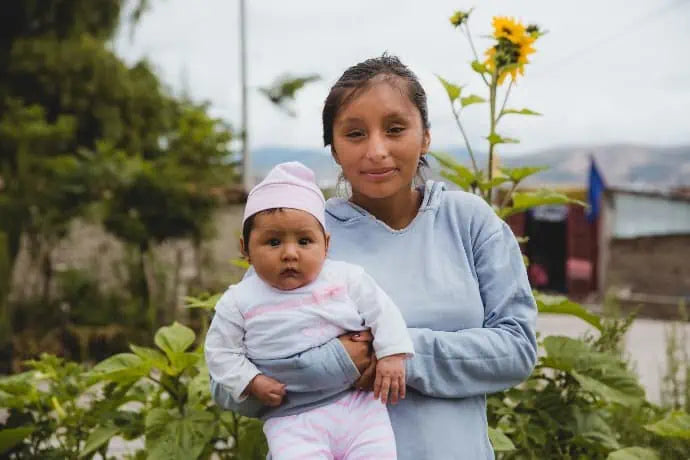
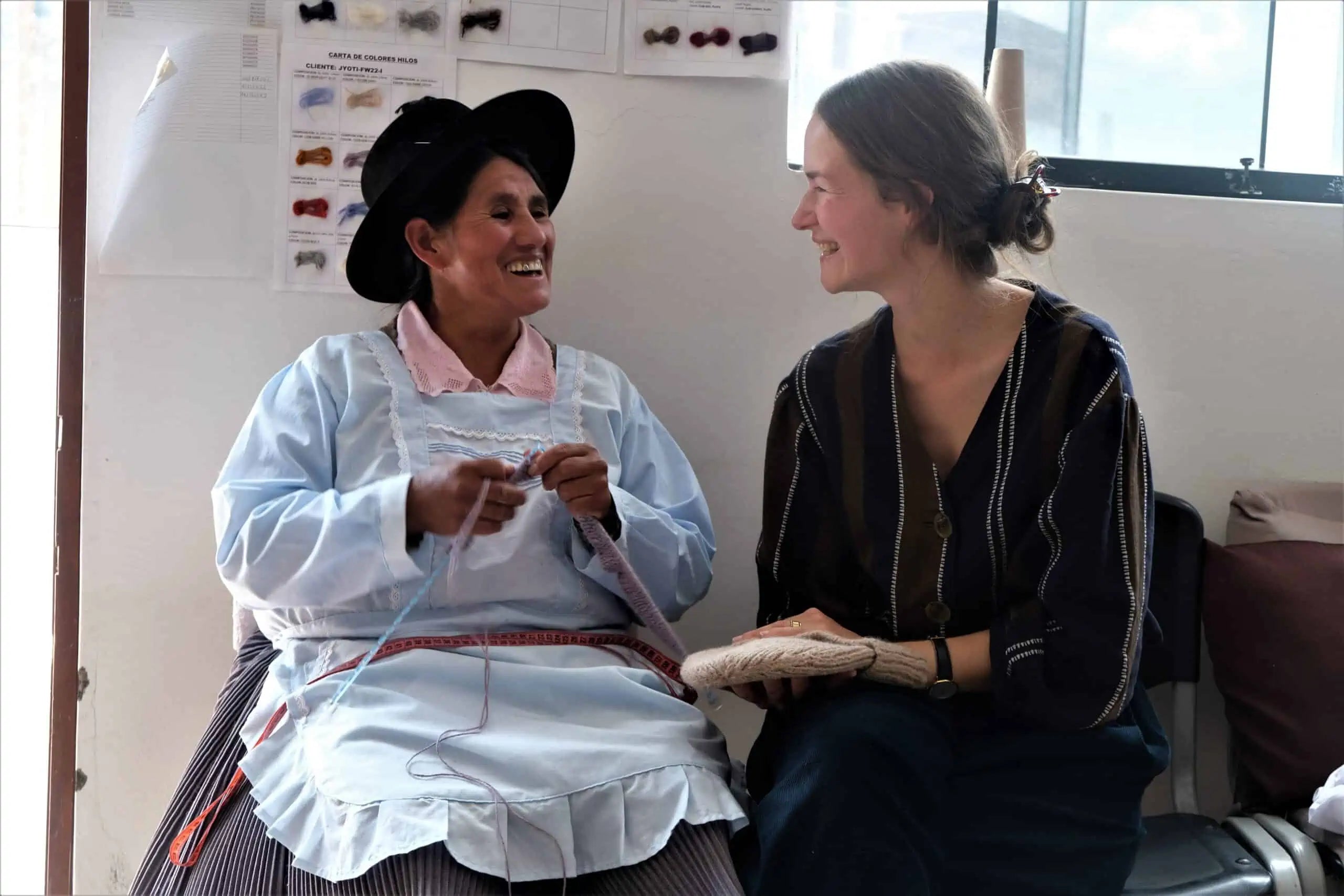
In addition to our desire to support the valuable work of Dia Manta, we were also completely convinced by the way the alpacas are kept in the Peruvian Andes. They live entirely in the wild and are only sheared very gently once every two years. Many of you have asked us why we use the fur of baby alpacas and whether this is not a burden for the little animals? We can reassure you on this point. The term baby alpaca does not refer to the age of the alpacas, but rather refers to the incredibly soft, perfectly insulating, short undercoat of the adult alpacas.
Pictures below: Jeanine with the alpaca farmers in the Peruvian Andes, Nov. 2022
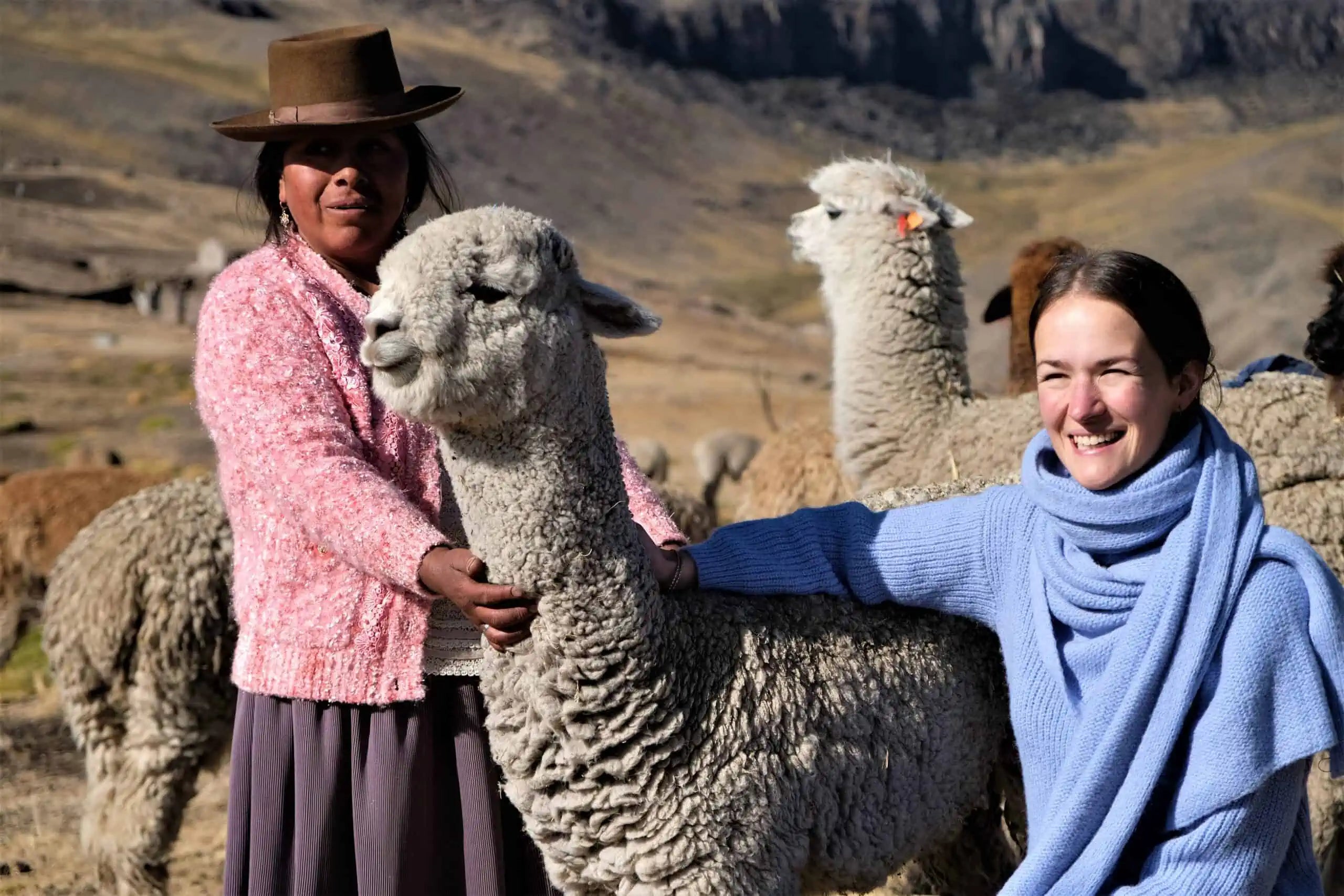
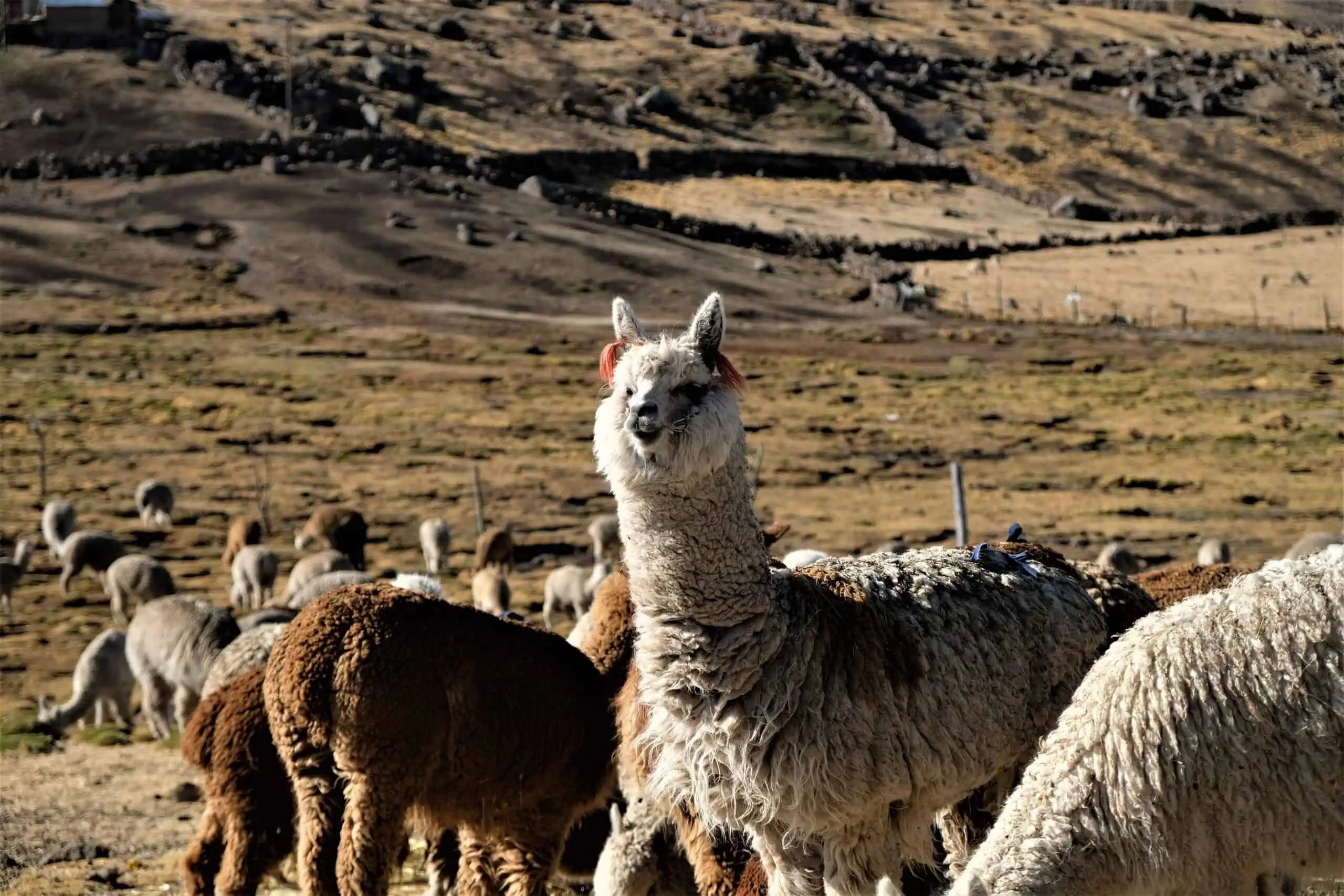
In November 2022, we were finally able to personally see for ourselves how the animals are treated and the work of Dia Manta and our 3 other partner producers - 3 small, women-run family businesses - and we are absolutely thrilled. We hope to continue to strengthen this collaboration over the next few years and to be able to offer you many more long-lasting and high-quality baby alpaca knitwear.
4. Jyoti – Circular and Zero Waste
In 2020, over 100 billion items of clothing were produced worldwide - twice as many as in 2005. At the same time, the useful life of clothing has decreased by 40%. Textile waste is therefore one of the main reasons why the textile industry is the second largest polluter in the world - right after the oil industry.
That’s why we decided to launch Jyoti – Circular.
Given the huge amounts of waste that the textile industry produces every year, we believe that it is no longer enough to ONLY produce fairly and ecologically sustainably. We are convinced that we need a circular system. But what does that mean? Circular fashion is the concept of designing, producing and sourcing fashion items with the intention of longevity and sustainability. Only pollutant-free, renewable, biodegradable and recyclable resources are used for production. Through good care, reuse, repair, resale and redesign, the products should be used for as long as possible and circulate between multiple users. When that is no longer possible, the products should be recycled by being processed into new products or composted to return to the biosphere in an environmentally friendly way.
Conscious of our responsibility, we offer you Jyoti second-hand pieces as well as prototypes and items of clothing with minor imperfections in addition to our regular collections. This way we can give our products the longest possible life, instead of simply forgetting them in the depths of wardrobes or letting them lead a sad life in our warehouse due to minor peculiarities.
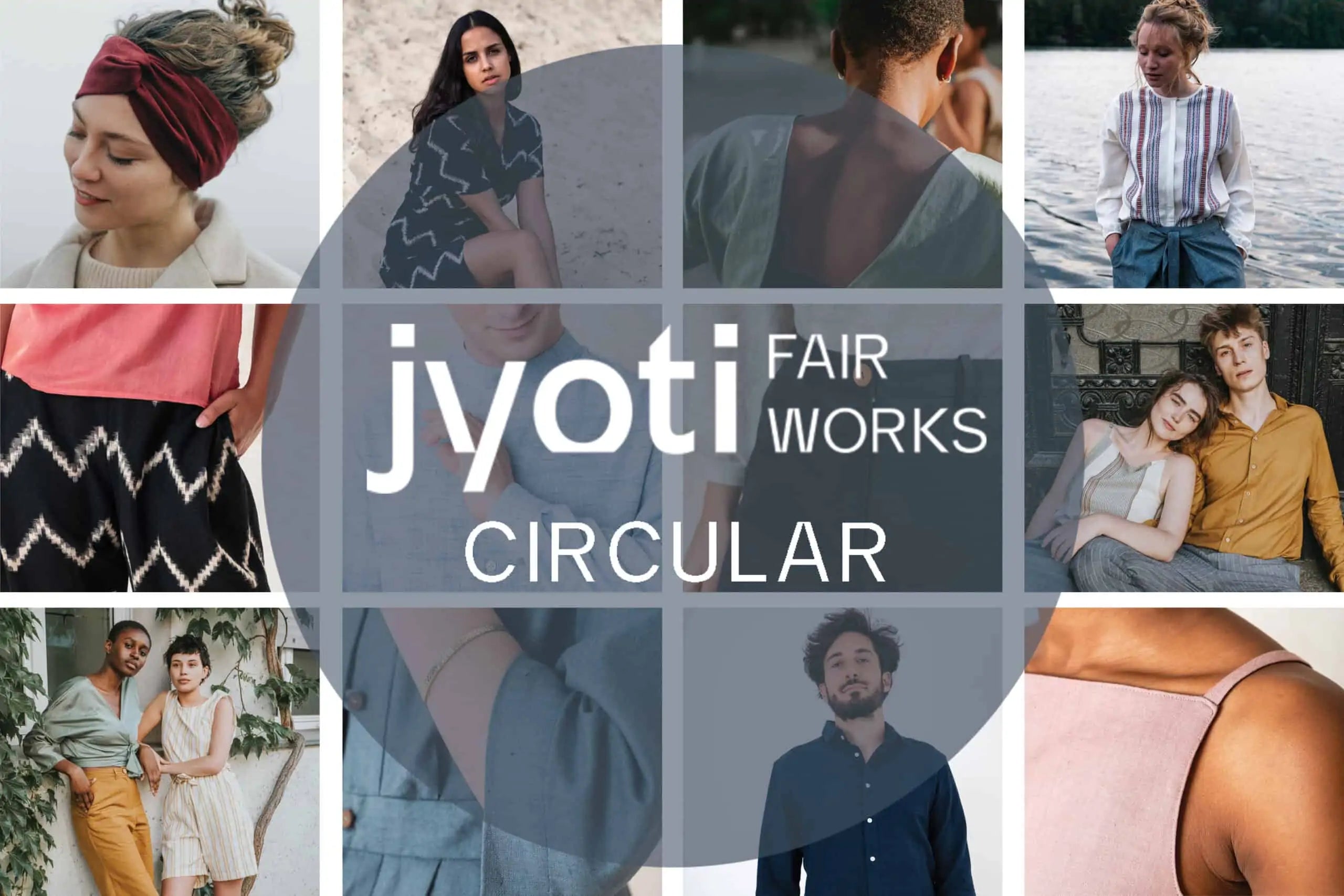
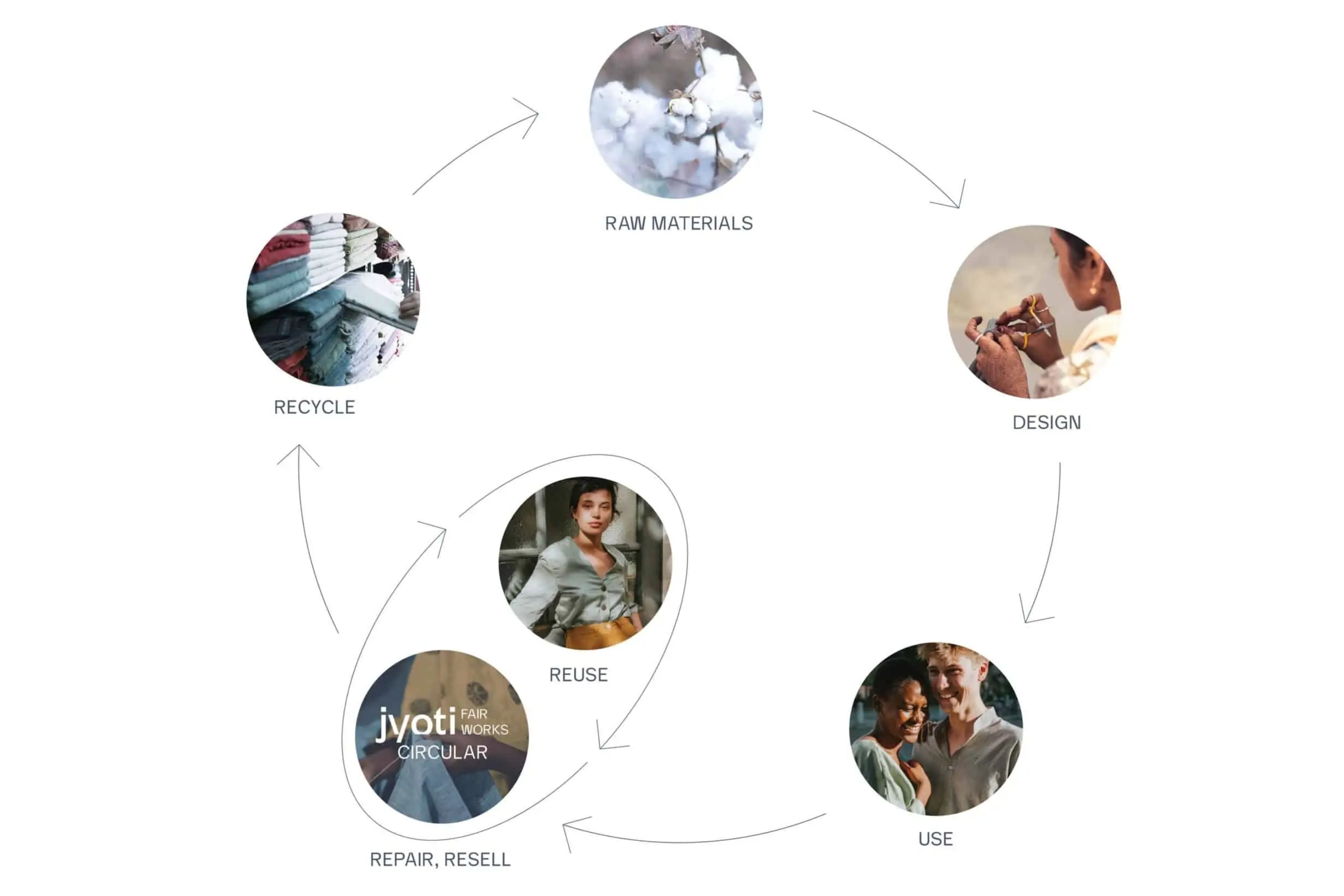
Since selling individual pieces online means a lot of effort that we cannot currently manage with our small team, we are currently offering our Jyoti Circular pieces in our shop at Oderberger Straße 42 in Berlin. Here we have a separate browsing corner for all the unusual treasures and we look forward to you stopping by!
Do you also have a Jyoti piece that perhaps no longer fits you? Then please send it to us along with the completed Jyoti Circular Form and we will include it in the Jyoti cycle. As soon as it has found a new home, we will refund you 50% of the resale price or give you the option of donating this amount to our non-profit organization Jyoti eV.
5. The Jyoti eV
Speaking of club =).
With the aim of being able to offer our Indian team members in Chittapur, Londa and Hyderabad further education opportunities, training and social benefits that go beyond the usual scope of a fair fashion company, we founded Jyoti eV in 2018 in close cooperation with our Indian partner NGOs Jyothi Seva Kendra (Chittapur) and Nava Chetana Kendra (Londa). By financing and planning workshops in areas such as workers' rights, women's rights, business development, as well as English and literacy courses, the women have the opportunity to further their education according to their interests, take important steps towards an even more independent life and perhaps even become self-employed. The association also organizes excursions and events on a wide variety of topics and supports our partner NGOs in emergency situations, such as the major floods in 2019 or the Corona crisis in 2020.
But why a company and an association and not just a common structure? To answer this question, we need to go a little further, because for a long time we at Jyoti have been asking ourselves how we want to be perceived and, more importantly, how we see ourselves.
It all started with an internship in the small Indian town of Chittapur. Through her work at the Indian NGO Jyothi Seva Kendra, our founder Jeanine gained insight into the often very difficult living situations, especially of women, there. Above all, they lacked professional opportunities and thus a stable source of income. The idea of a small sewing workshop was quickly born - less with the desire to create fashion than with the motivation to create sustainable and long-term job prospects for a growing group of women. What was missing was any sewing knowledge, both on the German and Indian side.
Today, things are very different. The women have developed into experienced and professional seamstresses and our team in Germany has also expanded to include a number of experts. Producing sustainable and timeless clothing and accessories is no longer just a means to an end, but an absolute core concern of Jyoti - Fair Works. We want to actively contribute to a positive change in the fashion industry and act as role models.
We would like to underline this development through the institutional separation of the association and the company. While the company Jyoti - Fair Works is committed to fair and sustainable production conditions at the highest quality level along the entire supply chain, Jyoti eV is responsible for the further realization of our original idea - the promotion of women in Chittapur and Londa.
In this way, the non-profit organization Jyoti eV not only ensures the continuation of the continuing offers for the seamstresses, but also enables us to support our partner NGOs in their work independently of the sewing workshops and to be able to support them, especially in emergency situations.
We and especially our partner NGOs Jyothi Seva Kendra and Nava Chetana Kendra would be delighted if you would like to support the work of the association with a donation and can of course issue you a donation receipt if you wish. Simply contact us at KONTAKT(AT)JYOTI-EV.ORG
What is also important for us to say: We are aware that we benefit from a very privileged situation here in Europe, which is largely based on colonialism and the (continuing) exploitation of other states, including India. It is very important to us to make it clear that the donations that flow to India via the association are not charity, but an attempt to act globally fairly on a small scale, and that our work is not aid, but cooperation on equal terms, in which we all depend on each other.
Jyoti eV is in no way intended to be an institution that maintains global power structures in their current form and we hope and work to ensure that the need for non-profit organizations like ours is replaced by global justice on a political and macroeconomic level.
